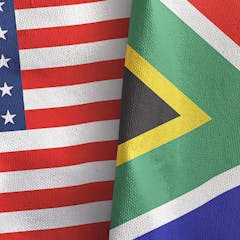
Articles on Imports
Displaying 1 - 20 of 54 articles

It’s not just size. China’s pragmatic trade strategy, which prioritizes meeting the development needs of its trading partners, has played a key role, too.

Setting off fireworks at home was as much a pandemic trend as buying a Peloton.

The US president is ramping up tariffs on Chinese-made products, including a 100% border tax on electric cars.

Physical checks on plant and animal products arriving from the EU will attract fees of up to £145.

Chinese car makers are finding the road to succeeding in the EU slow and bumpy.

Some people think the decision to impose higher tariffs is just an excuse used by the EU to keep protecting its own farmers.

But this comes with legal and health risks. Here’s what you need to know before importing medicine for yourself or your immediate family.

Ghana’s industries need fewer production constraints and more incentives to compete domestically.

An increase in global tensions is placing at risk the free flow of goods traded around the world.

Pretoria needs to pull off a balancing act in managing South Africa’s international relations to advance its economic interests.

China has responded to US sanctions with its own set of punitive measures. An expert on international trade explains the standoff and what it means for countries and companies caught in the middle.

Average farm machinery use in Africa is among the lowest in the world.

Nigeria’s Lekki Deep Sea Port is also its largest, and will boost the country’s ability to process imports and exports.

Manufacturing firms exposed to increased Chinese competition employed fewer female production workers than men.

The EU have introduced a new regulation on the import of products linked to deforestation – but will this reduce deforestation globally?

Many countries export their plastic waste abroad – but the mismanagement of this plastic waste is one of the leading causes of plastic pollution in nature.

A new study shows what it would mean for Europe and China, and why the US might not be too excited about the idea.

No electric vehicle maker currently meets all the bill’s supply chain requirements, not even Tesla. One big reason: China.

Approximately 8,000 merchant vessels travel the St. Lawrence each year. Its ports have become the catalysts that link trade, development and industrial innovation.

If the crisis worsens, more people will ask, how did this happen? The answer will be simple: governments made good laws, but they did not enforce them.
